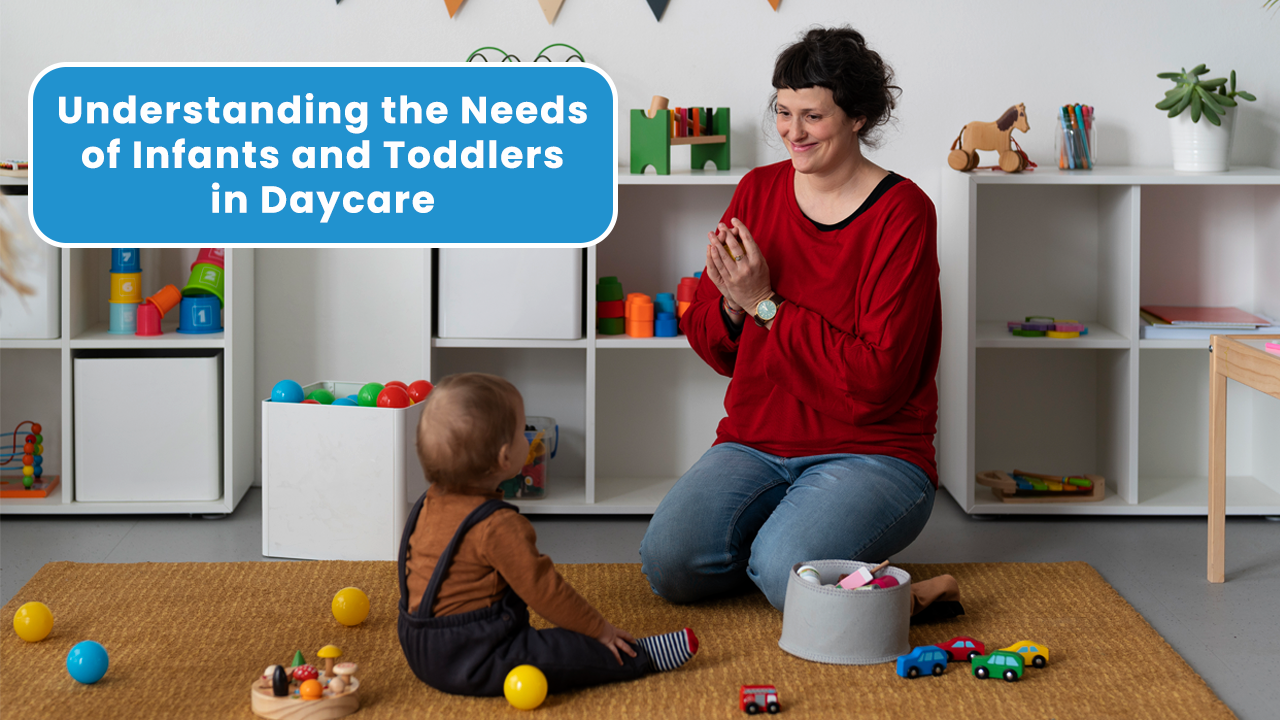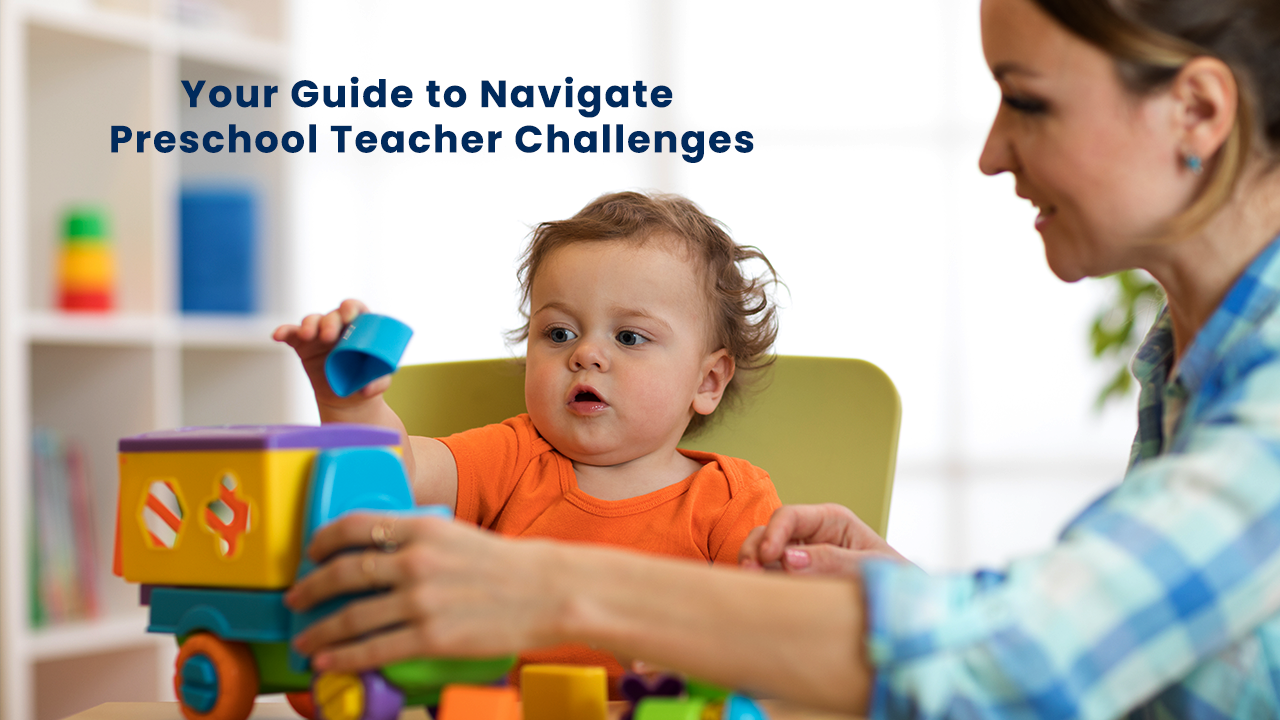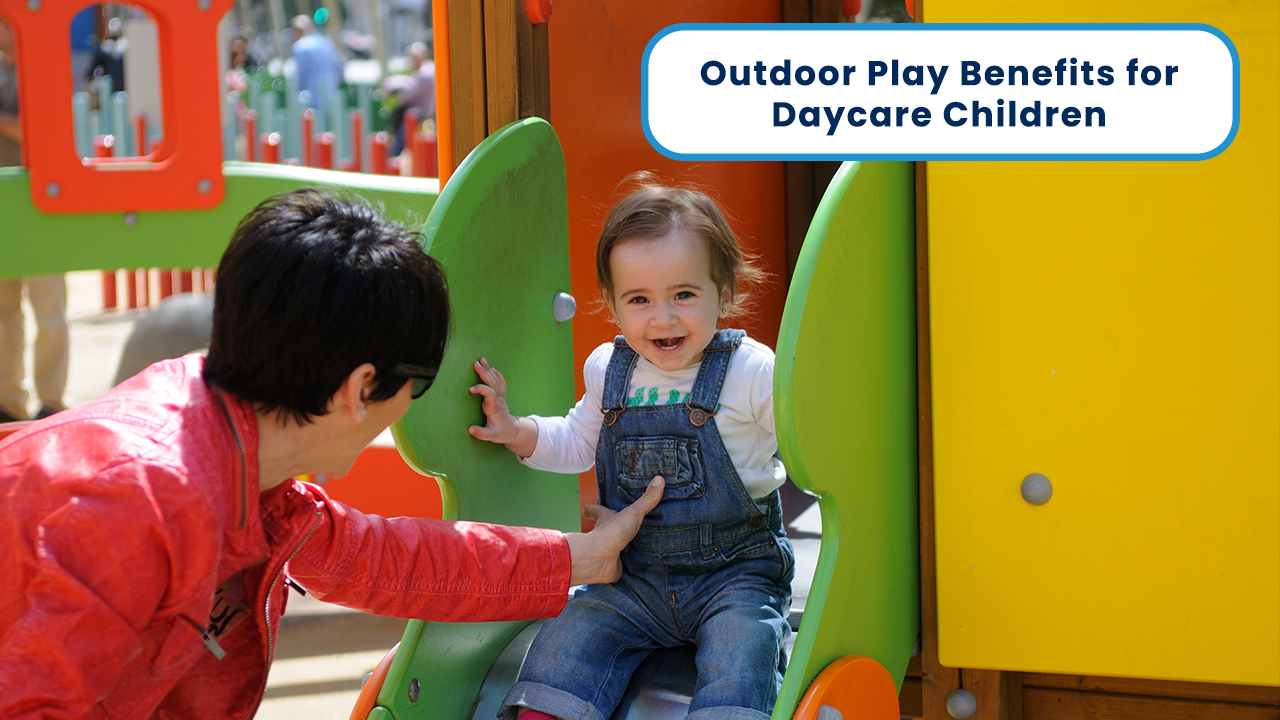
- Understanding the Needs of Infants and Toddlers in Daycare
- Key needs of infants and toddlers in daycare:
- 1. Physical Safety
- 2. Responsive Caregiving:
- 3. Emotional Security:
- 4. Nutrition and Feeding:
- 5. Consistent Routines:
- 6. Play and Exploration:
- 7. Social Interaction:
- 8. Language Stimulation:
- 9. Physical Activity:
- 10. Nap and Quiet Time:
- 11. Diapering and Toilet Training:
- 12. Individual Attention:
- How Daycare Centers Ensure Applying the Needs of Infants and Toddlers in Daycare
- How 360Daycare helps with Understanding the Needs of Infants and Toddlers in Daycare
Understanding the needs of Infants and toddlers in daycare centers is paramount. Daycare is essential for many parents, allowing them to balance work and family life. It provides children with a safe and nurturing environment while their parents are away. However, when it comes to infants and toddlers, understanding and addressing their unique needs becomes crucial for their overall well-being and development. In this blog post, we will delve into the distinct requirements of infants and toddlers in daycare and explore how caregivers can create a supportive and enriching experience for these young ones.
Understanding the Needs of Infants and Toddlers in Daycare
The needs of infants and toddlers in daycare are diverse and critical for their overall well-being and development. Understanding and meeting these needs is essential for providing a supportive and nurturing environment.
Key needs of infants and toddlers in daycare:
1. Physical Safety
Infants and toddlers are curious explorers, and daycare environments must be carefully childproofed to ensure their safety. Removing potential hazards, securing furniture, and providing age-appropriate toys are essential safety measures.
2. Responsive Caregiving:
Babies and young children need responsive and attentive caregiving. Promptly attending to their needs for feeding, diaper changes, and comfort builds trust and a secure attachment with caregivers.
3. Emotional Security:
Creating a warm and loving atmosphere is crucial for emotional development. Infants and toddlers need to feel secure and loved in their daycare environment to thrive and explore the world around them.
4. Nutrition and Feeding:
Proper nutrition is vital for growing children. Daycare centers should accommodate feeding schedules and provide appropriate meals and snacks that meet each child’s dietary needs.
Read more about the nutritious meals for daycare children
5. Consistent Routines:
Predictable routines help infants and toddlers feel secure and understand what to expect during their time at daycare. Consistency in daily schedules, including nap times and playtime, promotes stability and reduces anxiety.
6. Play and Exploration:
Play is the primary way young children learn and develop essential skills. Daycares should offer age-appropriate toys and activities that encourage exploration and stimulate cognitive, motor, and social development.
7. Social Interaction:
Infants and toddlers benefit from social interactions with both peers and caregivers. Small group sizes and opportunities for group play help foster social skills and emotional understanding.
8. Language Stimulation:
Language development is rapid during the early years. Caregivers should engage in conversations, sing songs, and read books with infants and toddlers to support language acquisition.
9. Physical Activity:
Toddlers, especially, need opportunities for physical activity and gross motor play. Access to safe outdoor spaces for running, climbing, and playing is beneficial for their physical development.
10. Nap and Quiet Time:
Adequate rest is essential for the well-being of infants and toddlers. Daycare centers should provide a quiet and comfortable space for napping or resting according to each child’s individual sleep patterns.
11. Diapering and Toilet Training:
Caregivers must be attentive to their needs and follow appropriate hygiene practices for infants and toddlers in diapers or undergoing toilet training.
12. Individual Attention:
Each child is unique and may have specific needs and preferences. Daycare providers should strive to give individual attention and personalized care to support every child’s growth and development.
How Daycare Centers Ensure Applying the Needs of Infants and Toddlers in Daycare
Daycare centers play a crucial role in ensuring that the needs of infants and toddlers are met effectively. By implementing various strategies and practices, daycare centers can create a supportive and enriching environment that addresses the unique requirements of young children.
Here are some ways daycare centers ensure applying the needs of infants and toddlers:
- Trained and Knowledgeable Staff:
Daycare centers hire caregivers who are trained in early childhood development and understand the needs of infants and toddlers. These professionals are equipped to provide responsive caregiving and meet the children’s physical, emotional, and developmental needs.
- Child-Centered Environment:
The physical environment of the daycare center is designed with the children’s needs in mind. It includes age-appropriate toys, materials, and play areas that encourage exploration, creativity, and development.
- Responsive Care:
Caregivers in daycare centers are attentive to the needs of each child, promptly responding to their cues for hunger, discomfort, or emotional support. Responsive caregiving builds trust and helps children feel secure in their environment.
- Age-Appropriate Activities:
Activities are tailored to suit the age and developmental stage of each child. Infants may engage in sensory play and tummy time. On the other hand, toddlers participate in more complex activities that encourage language development and social interactions.
- Parent Communication:
Effective communication with parents is essential. Daycare centers inform parents about their child’s daily activities, progress, and concerns. Parent-teacher conferences and regular updates help build a strong partnership in supporting the child’s growth.
By combining these strategies and practices, daycare centers can provide a nurturing and stimulating environment that effectively meets the needs of infants and toddlers. Creating a positive early childhood experience lays the foundation for their future learning, well-being, and success.
How 360Daycare helps with Understanding the Needs of Infants and Toddlers in Daycare
360Daycare management software can significantly aid in understanding and ensuring the needs of infants and toddlers in daycare. This specialized software streamlines various administrative tasks, enhances communication, and provides valuable insights that enable daycare centers to create a more supportive and child-focused environment. Here’s how 360Daycare management software helps with understanding and meeting the needs of infants and toddlers:
Child Profiles and Individualized Care:
The software allows daycare centers to maintain comprehensive profiles for each child. This includs essential information such as dietary requirements, allergies, and medical needs. With easy access to these profiles, caregivers can effectively provide individualized care and address each child’s unique needs.
Attendance and Staff Ratios:
360Daycare software tracks attendance and helps manage staff-to-child ratios. By ensuring appropriate staffing levels, daycare centers can maintain a safe and attentive environment for infants and toddlers.
Daily Activity Logs:
Caregivers can use the software to record and share detailed daily activity logs for each child. This includes information on meals, naps, diaper changes, playtime, and other activities, helping parents stay informed about their child’s routine and development.
Health and Medication Management:
The software assists in managing health-related aspects. For example, t helps with tracking medication administration, health check-ups, and vaccination schedules. This ensures that infants and toddlers receive the necessary medical attention as per their specific requirements.
Communication with Parents:
360Daycare software enables seamless communication between daycare centers and parents. Parents can receive updates, photos, and messages about their child’s daily experiences, milestones, and concerns, fostering a strong partnership in meeting their child’s needs.
Child Development Tracking:
In conclusion, 360Daycare management software offers comprehensive tools and features to facilitate understanding and ensure the needs of infants and toddlers in daycare. By streamlining administrative tasks, enhancing communication, and providing valuable insights, this software empowers daycare centers and caregivers to create a nurturing and child-focused environment that supports the healthy development of young children.


